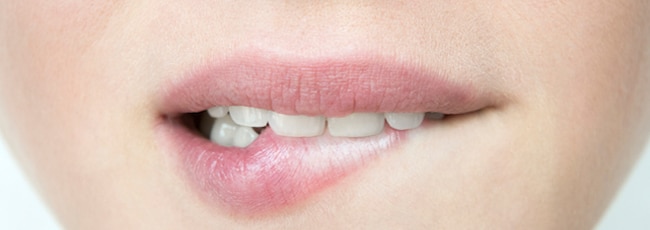All The Facts About Teeth Grinding

Grinding your teeth at night or clenching your jaw during the day can do more than just give you a sore jaw and a headache. Clenching and grinding (medically referred to as bruxism) can damage your teeth by cracking and fracturing your enamel. It may also damage dental work like bridges, crowns, root canal and dentures. People that grind at night may also have other sleep related problems like sleep apnea (snoring).
It may be hard to know if you’re grinding at night. Some common signs and symptoms to look for include:
- Teeth that appear chipped, fractured or loose
- A dull headache around your temples
- A tired, tight or sore jaw when you awake, and/or increased tooth sensitivity or tooth pain
- Your partner may also notice that your grinding is loud enough to disturb their sleep
Bruxism can occur in both adults and children, and it’s common in children with ADHD. Most usually outgrow it by the time they reach their teen years.
Treatments for bruxism include:
- Reducing stress (try exercising and getting plenty of sleep)
- Wearing a mouth guard at night to protect teeth
You can help relieve sore jaws and other symptoms by:
- Avoiding chewing on non-food items (like pencils)
- Staying hydrated
- Avoiding alcohol and caffeine (including chocolate)
- Consciously relaxing and massaging the jaw throughout the day.
Be sure to discuss your grinding with your dentist so they can inspect your mouth for damage. They may also have additional ideas for how to relieve your symptoms and stop the grinding.
Sources:
- http://www.webmd.com/oral-health/guide/teeth-grinding-bruxism
- http://www.huffingtonpost.com/2014/05/18/night-teeth-grinding-nocturnal-bruxism_n_5235620.html

